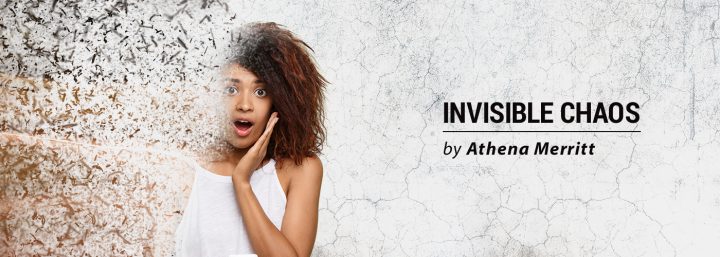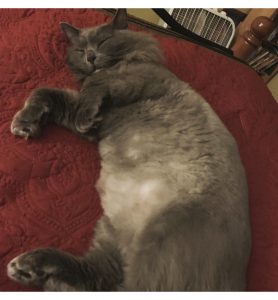When Restful Sleep Is Elusive, Here’s What I Do
Written by |

Whenever I see my friend Laurie’s cats or my niece Nautica’s dog sleeping I think, “I wish I could sleep like that.” Their pets can drop into a blissful snooze anywhere and under any circumstances and look so comfortable. That’s a state I yearn to achieve nightly in my quest for a good night’s rest, which is vital in battling sarcoidosis.
Sleep isn’t just important for us Sarcoidosis warriors. Everyone needs to make getting enough shut-eye a priority for their health, a message the National Sleep Foundation hopes to drive home during their Sleep Awareness Week campaign running from March 8 to 14.
No rest for the weary
Fatigue and excessive daytime sleepiness, which are two different symptoms, are common in sarcoidosis. Excessive daytime sleepiness strikes those of us with sarcoidosis about twice as frequently as the general population, according to research.
Between 50 and 85 percent of us with sarcoidosis battle fatigue, according to the study, “Fatigue and Excessive Daytime Sleepiness in Sarcoidosis: Prevalence, Predictors, and Relationships between the Two Symptoms,” published in the journal Respiration. The study, conducted in Germany, found that 16.5 percent of sarcoidosis patients who were surveyed said they experience excessive daytime sleepiness, while 16.4 percent said they have severe fatigue, and 6.3 percent have both symptoms.
I’m among those battling both fatigue and excessive daytime sleepiness — diagnosed with sleep studies — that on the worst days can turn me into a walking zombie. Although no amount of sleep (or even caffeine or medication) can banish my tiredness on many days, I know that not getting the recommended 7-8 hours each night certainly doesn’t help my sarcoidosis symptoms.
Catching zzzs
One of my top challenges to a restful night is chronic pain, which is common among those of us with sarcoidosis, even with the use of pain medication, according to a survey in 2017. I’m hardly alone in my misery. In 2016, an estimated 50 million American adults had chronic pain, and nearly 20 million had high-impact chronic pain, according to the Centers for Disease Control and Prevention.
For those of us battling pain, the odds are stacked against us when it comes to getting a good night’s slumber. Sixty-five percent of Americans with no pain reported good or very good sleep quality, compared with just 45 percent with acute pain and 37 percent with chronic pain, according to the National Sleep Foundation.
Other factors (sometimes self-inflicted) also impact my ability to catch a blissful 7-8 hours of zzzs each night, such as noise, stress, a wandering mind, and using electronics too close to bedtime.
40 winks to better health
Research has shown that not getting enough sleep can affect everything from your heart to your eating habits, which can increase cardiovascular disease risk. I’ve noticed firsthand I tend to reach for more junk food when I lack sleep, derailing my efforts to eat healthily.
Daytime sleepiness in older adults could signal trouble, according to a Stanford University study. The research found that those who reported excessive sleepiness during the day had double the risk of cancer, diabetes, and high blood pressure, and were 2.5 times more likely to develop heart disease.
For me, a few small changes helped to improve my nightly siesta efforts. I avoid electronics late in the evening, turn the thermostat down to 62 degrees, and eat a small snack an hour before bedtime, which helps signal to my brain that it’s time to catch some zzzs. I also made my bedroom a place for sleeping — not reading, using my laptop, or watching television.
Sticking to a sleep schedule, limiting daytime naps, watching what you eat and drink, and regular physical activity are among the tips offered by the Mayo Clinic for better sleep.
Do you have difficulty getting a restful night’s sleep? Please share in the comments below.
***
Note: Sarcoidosis News is strictly a news and information website about the disease. It does not provide medical advice, diagnosis, or treatment. This content is not intended to be a substitute for professional medical advice, diagnosis, or treatment. Always seek the advice of your physician or other qualified health provider with any questions you may have regarding a medical condition. Never disregard professional medical advice or delay in seeking it because of something you have read on this website. The opinions expressed in this column are not those of Sarcoidosis News or its parent company, Bionews Services, and are intended to spark discussion about issues pertaining to sarcoidosis.








Tommy
Thank you!!
Athena Merritt
You're welcome Tommy! Thank you for reading. Take care and be safe!
Linda Warren
It is good to know I am not alone. It often feels that way when dealing with the preconceived opinions and critical observations of others. I hope you are doing well today. One day at a time. Thank you.
Athena Merritt
Thank you - the feeling goes both ways. Comments from readers, like yourself, remind me there are others that understand. Thank you for lifting my spirits. I hope happiness shines on you today and whenever you need it. Be safe and well!